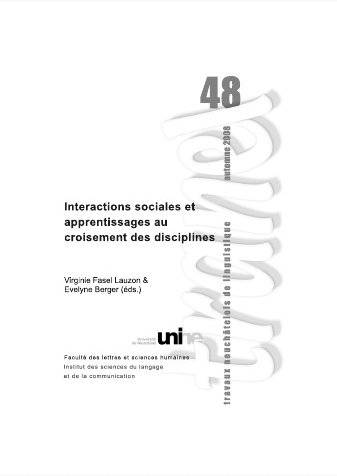Co-construction dans l'interaction en classe de FLE: de la dialogicité du langage vers la dialogicité de l'apprentissage
DOI :
https://doi.org/10.26034/tranel.2008.2812Résumé
Exploring the bakhtinian notion of the dialogic nature of language for the process of second language learning, the aim of this paper is to illustrate the social and situated dimension of the learning process, as interactional, dialogical achievement, on the basis of a case study in the French foreign language classroom. The theoretical stance developed here places itself within the larger framework of interactionally and socioculturally informed research concerned with the embeddedness of (inter)action, language and cognition, that emphasizes the socially situated and contingent dimension of cognition and competence, proposing a re-conceptualisation in the perspective of action (Pekarek Doehler, 2006) and social practices. A micro-analytic approach allows to follow the stepwise and collaborative construction of linguistic resources across participants in a peer-group interaction, and the subsequent mobilization of a resource across time (after a one month interval).


